With the increasing demand for electric bicycles, especially the fat bike type, It's wise to get to know the laws and regulations related to ebikes. The rules for ebikes on public roads vary from state to state, so riders need to follow the local traffic rules where they live. Some regions in the United States have yet to clarify the laws of ebikes, but here we present to you the rules in several states who have made it clear.
The federal Consumer Product Safety Act defines a "low-speed electric bicycle" as a two or three-wheeled vehicle with fully operable pedals, a top speed when powered solely by the motor under 20 mph (32 km/h), and an electric motor that produces less than 750 W. All of them have to be under both of the federal regulations and local regulations.
Below there is basic information of law for ebikes in several states in the US.
Max Speed: Maximum speed when powered solely by the motor.
Max Power: Maximum motor power, or engine size, permitted.
| State | Max speed | Max power | Helmet | Min age | Driver's license |
|---|---|---|---|---|---|
| Arizona | 20 | 48cc | No | None | No |
| California | 20 | 750W | Class 1 dependent | Class dependent | No |
| Colorado | 20 | 750W | No | None | No |
| Idaho | 30 | < 2 brake hp | No | 16 | Yes |
| Montana | 30 | 50cc | Under 18 | No | |
| New Mexico | Under 18 | No | |||
| Nevada | 20 | 750W | No | No | |
| Oklahoma | 20 | 1000W | Under 16 | 16 | No |
| Oregon | 20 | 1000W | Under 16 | 16 | No |
| Texas | 20 | None | No | None | No |
| Utah | 20 | 750W | No | 8 (accompanied by parent/guardian), 14 (unaccompanied) |
No |
| Washington | 28 | 750W | No | 16, for class3 | No |
| Wyoming | 20 & 28 mph for class3 |
50cc | Yes |
There are four classes of ebike in the United States.
Class 1: Pedal-Assist,
Class 2: Throttle on Demand,
Class 3: Speed Pedal-Assist,
Class 4: Moped or Motorcycle.
Arizona:
Under Arizona law, unless specifically prohibited, electric bicycles may be operated on multi-use trails designated for hiking, biking, equestrian, or other non-motorized usages, and upon paths designated for the exclusive use of bicycles. No operator's license is required, but anyone operating a bicycle on Arizona roads must carry proof of identity.
California:
In California, ebikes are regulated like bicycles. The same rules of the road apply to both e-bikes and human-powered bicycles. Ebikes are not subject to the registration, licensing, or insurance requirements that apply to motor vehicles.
Colorado:
Ebike definition in Colorado follows the HR 727 National Law: 20mph (30km/h) e-power and 750W max. Legal low-powered ebikes are allowed on roads and bike lanes and prohibited from using their motors on bike and pedestrian paths unless overridden by local ordinance.
Montana:
Since April 21, 2015, mopeds have been reclassified as bicycles in Montana and do not require a driver's license, therefore, you could refer to the bicycle law.
Nevada:
As of May 19, 2009, Nevada amended its state transportation laws to explicitly permit electric bicycles to use any "trail or pedestrian walkway" intended for use with bicycles and constructed with federal funding, and otherwise generally permits electric bicycles to be operated in cases where a regular bicycle could be.
New Mexico:
New Mexico has no specific laws concerning electric or motorized bicycles. MVD rules treat motorized bicycles the same as bicycles, requiring no registration or driver's license.
Oregon:
Oregon Law defines an electric-assisted bicycle as an electric motor-driven vehicle equipped with operable pedals, a seat or saddle for the rider, no more than three wheels in contact during travel. In addition, the vehicle must be equipped with an electric motor that is capable of applying a power output of no greater than 1,000 watts, and that is incapable of propelling the vehicle at a speed greater than 20 miles per hour on level ground.
Texas:
In the State of Texas, electric bicycles are defined as bikes that are powered by an electric motor that has a top speed of 20 MPH on level ground. You don't need a driver's license or anything else to ride one, but you also can't drive on highways.
Utah:
Utah law identifies ebikes as a traditional pedal bike that is propelled by human power and equipped with an assisting motor. ebikes are not subject to the registration, licensing, or insurance requirements that apply to motor vehicles. Ebikes are allowed on bike paths but not allowed on sidewalks.
Washington:
In Washington, all classes of electric-assisted bicycles may be operated on a fully controlled limited-access highway. Class 1 and 2 electric bicycles can be used on sidewalks, but Class 3 bicycles "may not be used on a sidewalk unless there is no alternative to travel over a sidewalk as part of a bicycle or pedestrian path." Generally, a person may not operate an electric-assisted bicycle on a trail that is designated as non-motorized and that has a natural surface unless otherwise authorized.
Cyrusher eBikes
All Cyrusher ebikes comply with most of the above rules in terms of motor max power and speed, so have peace of mind when purchasing any Cyrusher ebike model. Shall you require more information please contact our amazing support team.

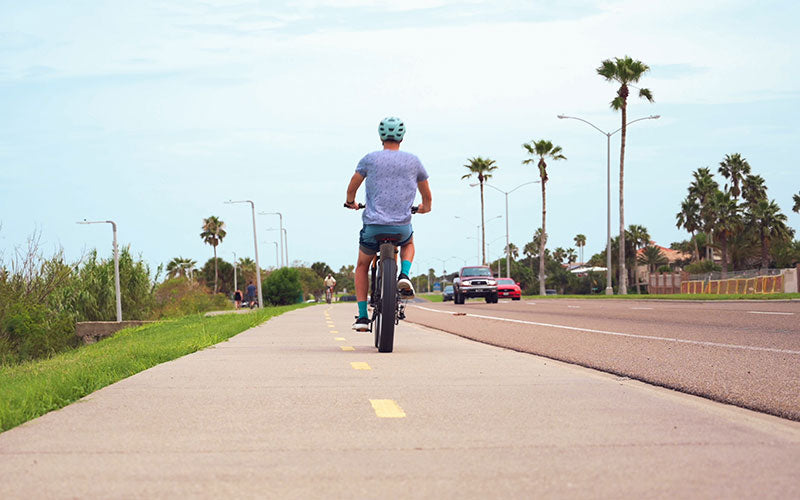
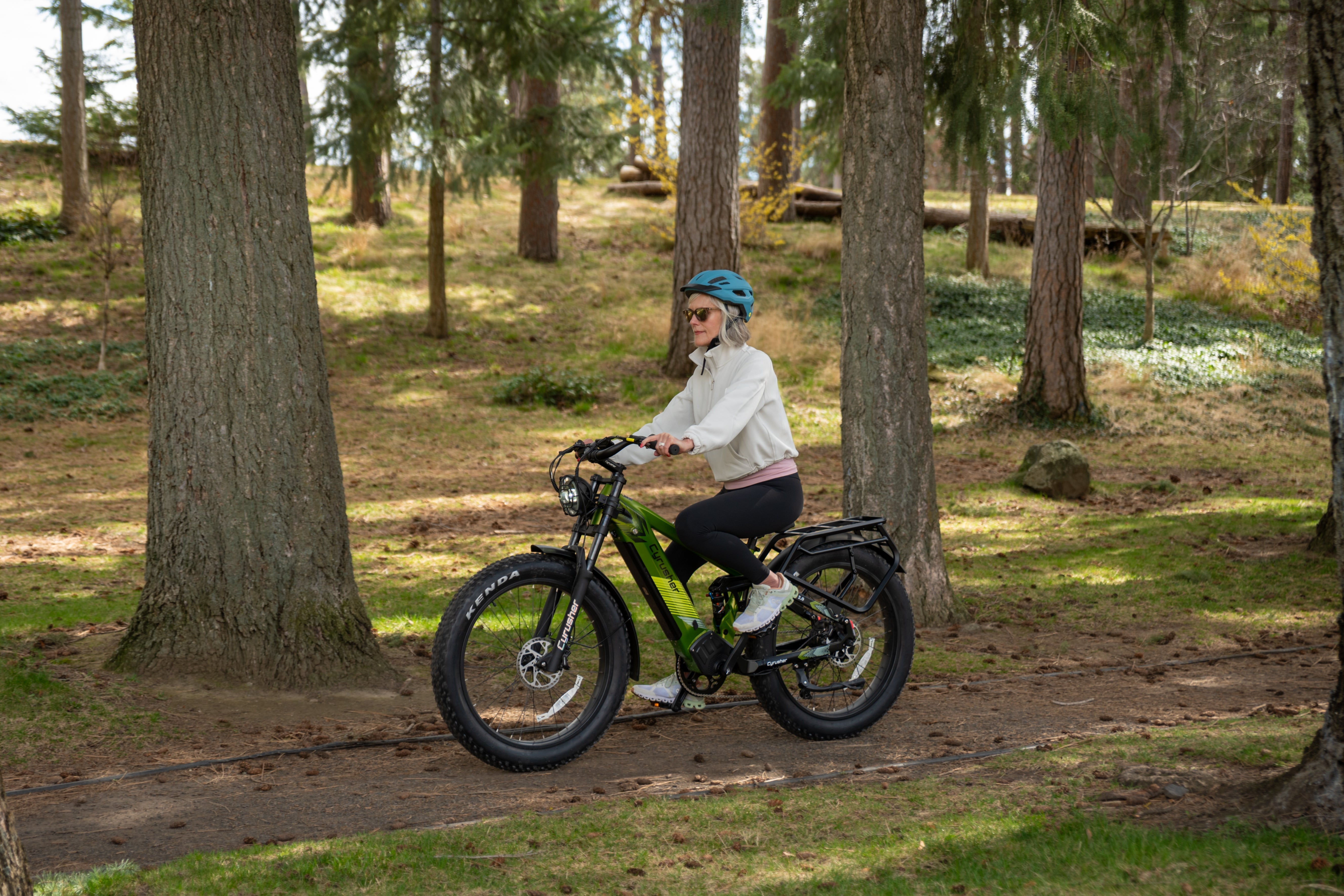


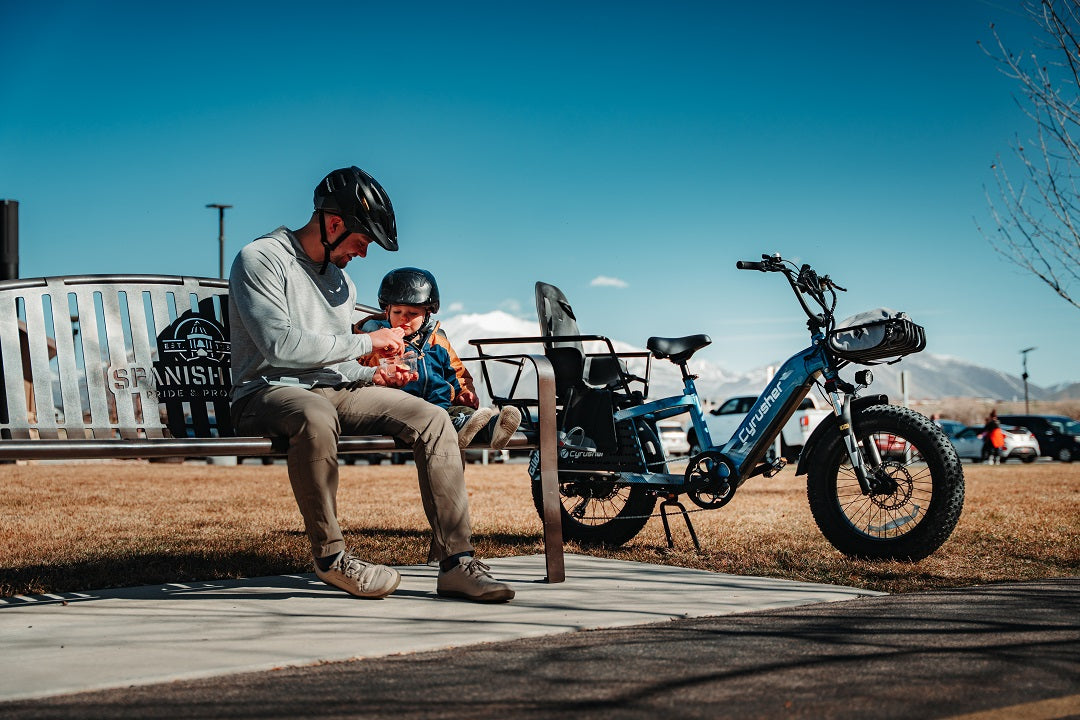
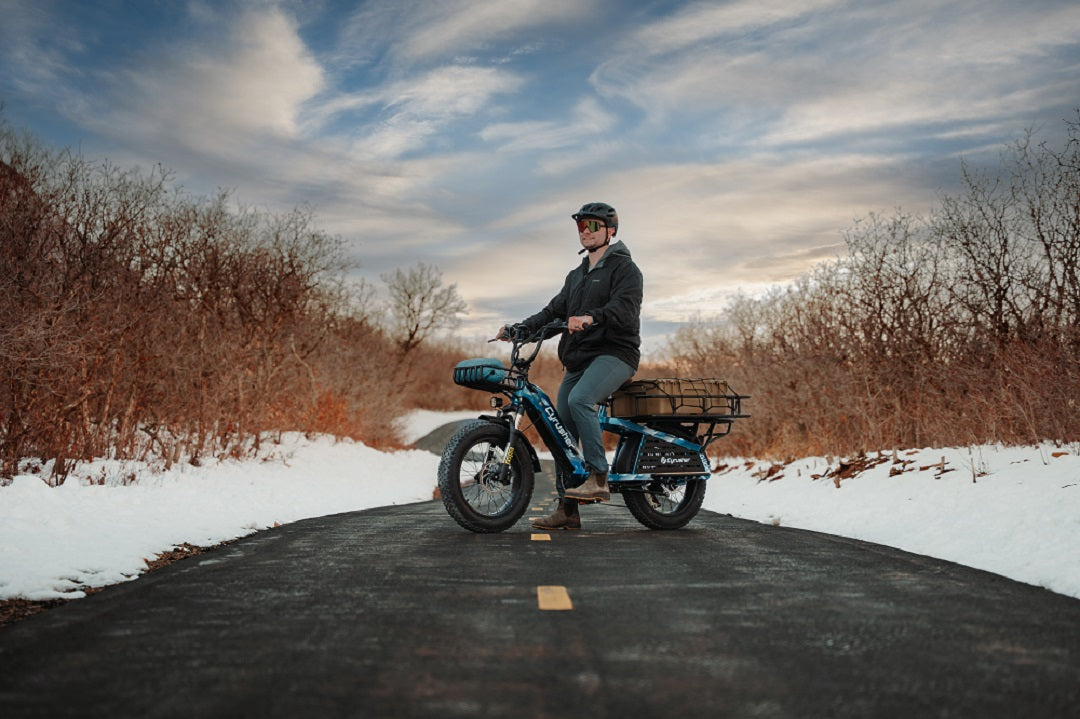
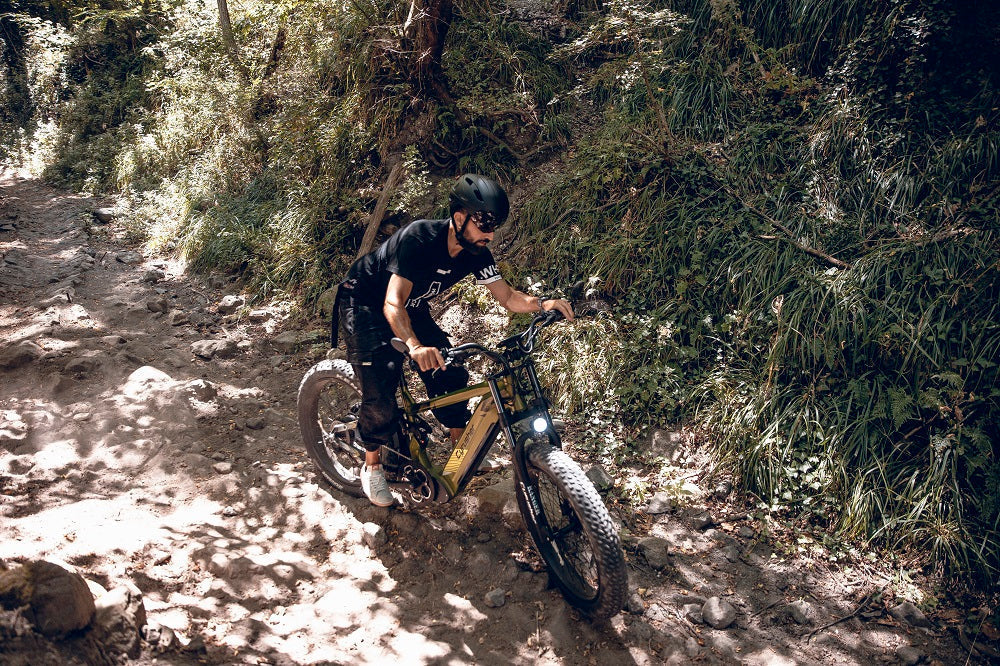
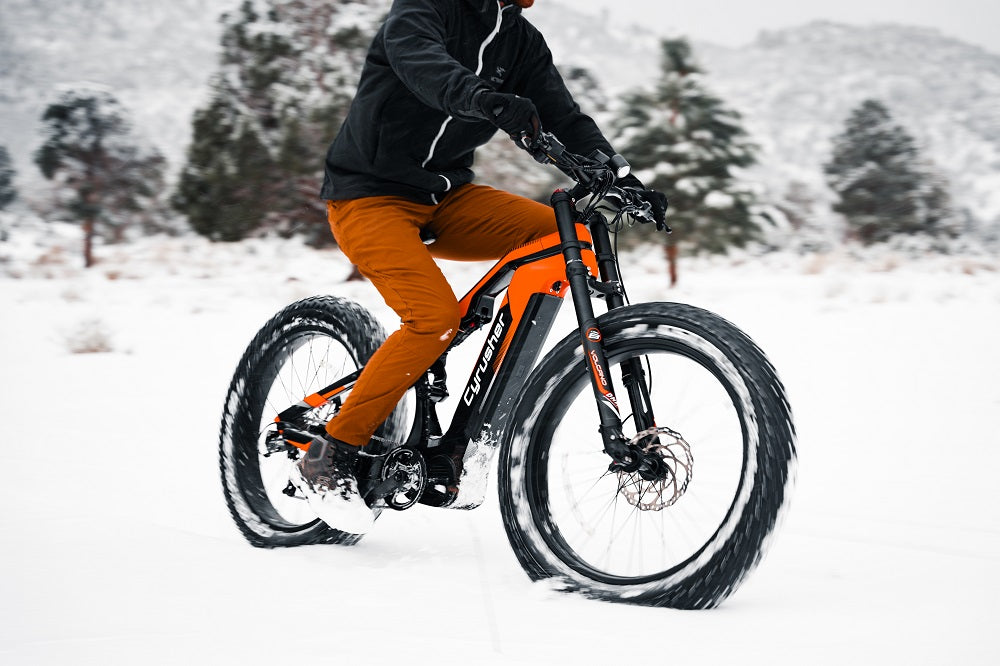
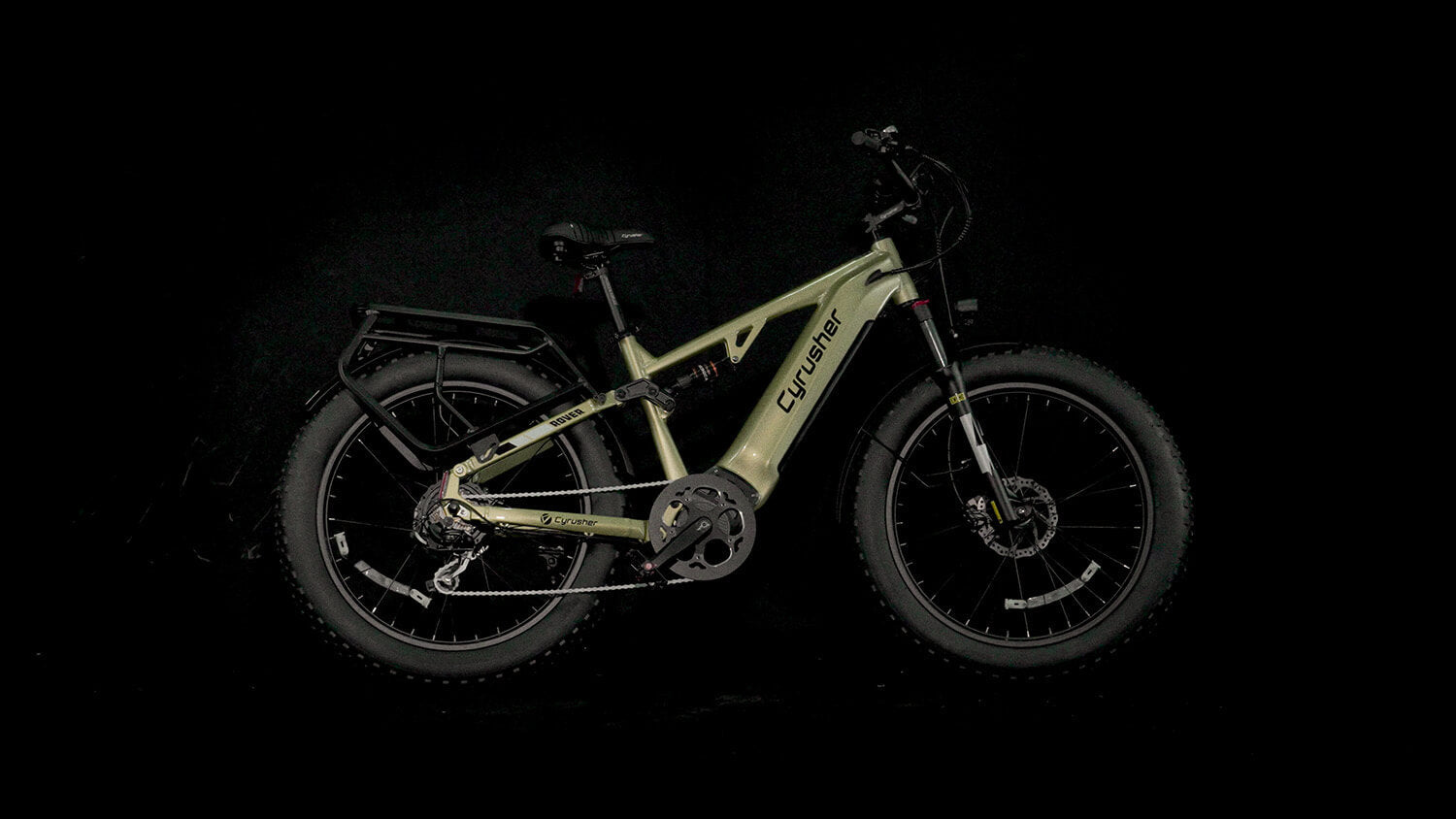
Share:
Why you might be someone who needs an Ebike?
Where are Cyrusher bikes made?